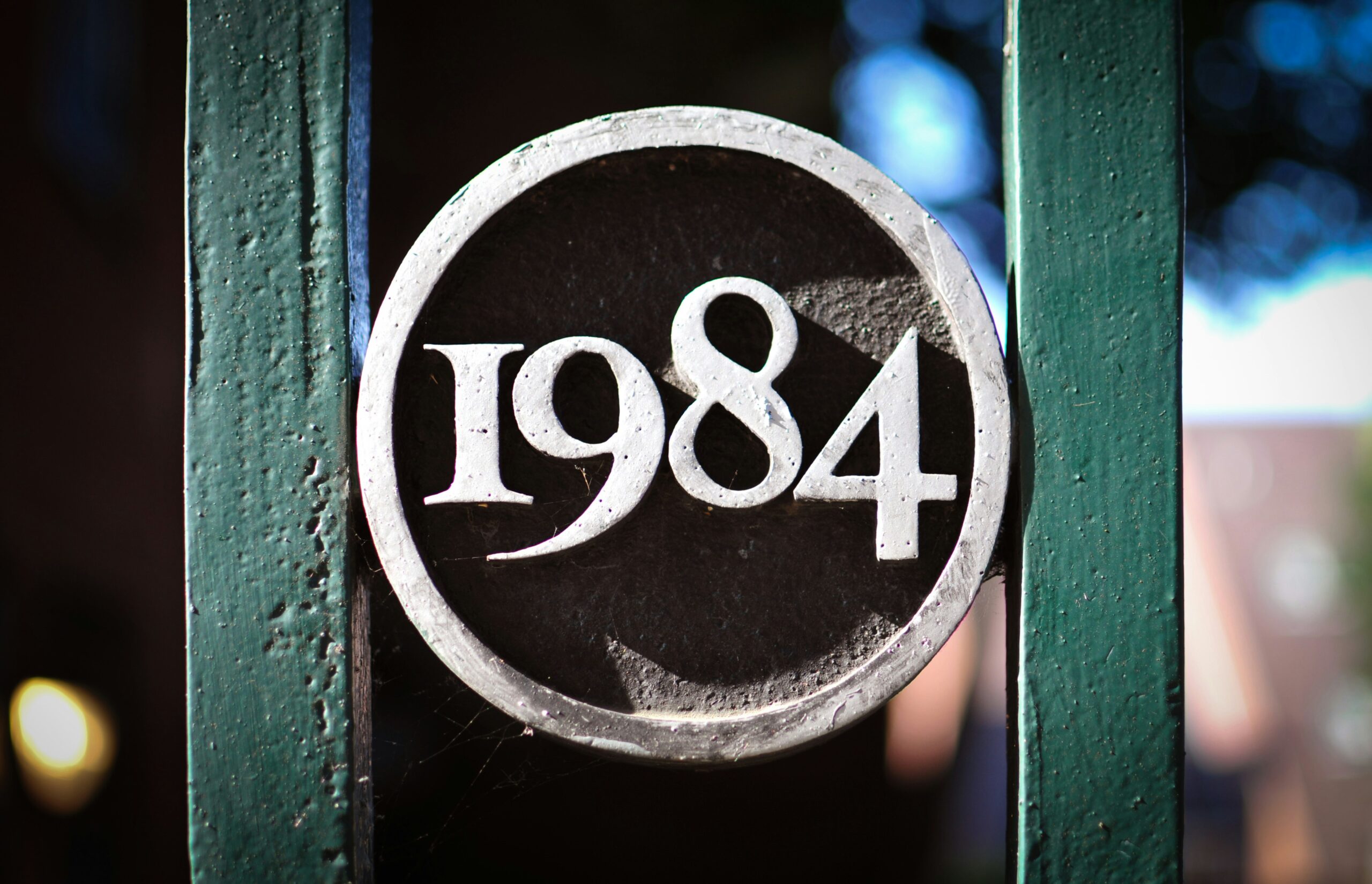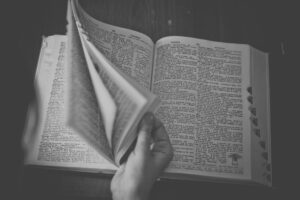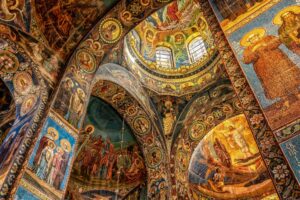1984 is a novel about a dystopian society that is characterized by totalitarianism, censorship, complete lack of freedom, nonexistence of individuality, and suppression of thought. If you have read Brave New World by Aldous Huxley, you will notice that the 1984 society is almost an inversion of that.
After World War II, three world super states sprung into existence: Oceania, Eastasia, and Eurasia. These three states are always at war with each other. The main characters of the story live in Oceania, where the Party (Ingsoc) is in total control of almost everything.
The Party is ruled by a powerful individual known as Big Brother (we never meet this individual in the novel). The Inner Party members work for Big Brother and govern the Outer Party Members. There is also a large segment of the population, the proletarians (or “proles”), who go on about their daily lives with little intervention from the Party and its Thought Police because they are deemed primitive and harmless.
We are first introduced to the main character, Winston Smith, who is a regular worker from the Outer Party. He works in the Department of Truth and is presented as a poor and lonely man. Don’t let the name of the department trick you – it is named the Department of Truth, but its main aim is to falsify information and rewrite history to show that the Party is always right, and things are going in its favor.
Individuals who are convicted by the Thought Police are tortured and eliminated from existence. Winston’s job includes rewriting history to show that these individuals never existed. He develops anti-Party and anti-Big Brother thoughts. He is later caught by the Thought Police for thought crimes.
Julia is the other main character in the story. She works in the Fiction Department on the novel-writing machines. These novels are written to alter reality and serve Big Brother’s propaganda. Julia and Winston first meet at the Two Minutes Hate, which is a daily work ritual for the Outer Party members to express hatred for Emmanuel Goldstein, the party’s main enemy and leader of the Brotherhood (Spoiler alert – similar to Big Brother, we never get to meet this person.)
After a couple of encounters, Julia slips a note stating “I love you” for Winston. Both grow to like each other and inadvertently commit crimes (love is a crime). She is also caught by the Thought Police while with Winston.
O’Brien is the Inner Party figure who ends up luring Winston as being a member of the Brotherhood. Convinced and excited that O’Brien is a member of the Brotherhood, Winston and Julia fall into the trap by admitting their anti-Party thought. Once caught by the Thought Police, they are both jailed and tortured to admitting what they did.
The story focuses on O’Brien’s brutal investigation of Winston. In Room 101, O’Brien succeeds in breaking Winston into loving Big Brother and hating Julia. O’Brien symbolizes the harshness and manipulative nature of the Party’s totalitarian system.
This novel has several key ideas:
- Surveillance and censorship: The Party exercises total control over the privacy of its members. Telescreens are machines that are installed everywhere to monitor what each member is doing. Microphones are also installed to monitor what is being discussed. No one is allowed to say what they think (or even think to begin with).
- The manipulation of truth by those in power: There is a constant revision and falsification process to manipulate the truth in the Party’s favor. Even the tiniest of details is examined and carefully rewritten to match the Party’s goals.
- The destruction of individualism and promotion of conformity: In this society, everyone is expected to act in line with the whole. There is no room for individual preferences. Even being alone raises suspicions and should be avoided.
- Controlling thoughts and feelings through language: The Party’s official language is Newspeak. It is the substitute language for Oldspeak (which us the English language as the world had known it until the 1960s). The purpose of this language is to remove words that could hurt the Party and create words that serve Big Brother. One common word is “doublethink,” which describes believing two contradictory statements (War is Peace, Slavery is Freedom, Ignorance is Strength).
- Propaganda: Telescreens are installed everywhere and broadcast propaganda information 24/7. An Outer Party member is not allowed to turn off their telescreen. Everyone is fed propaganda information all day.
One of the popular quotes from this novel is:
Who controls the past controls the future. Who controls the present controls the past.
George Orwell, 1984
This novel was banned in several countries because of its ideas. I recommend reading this novel and Brave New World by Aldous Huxley. Both of these novels discuss a dystopian society, but one is the extreme of the other.


